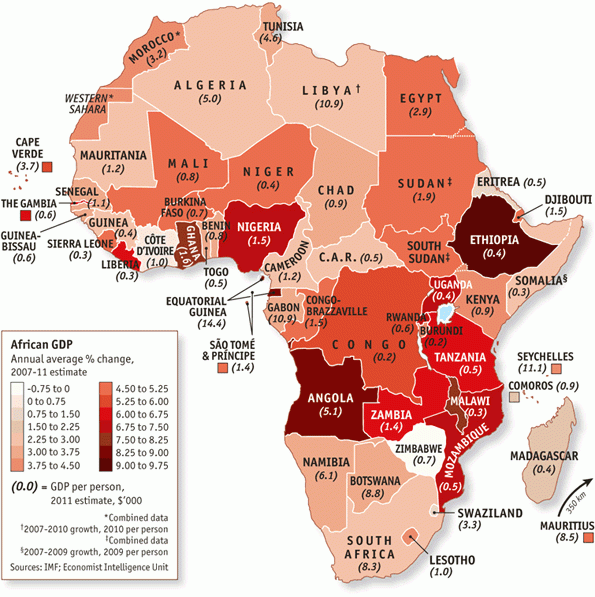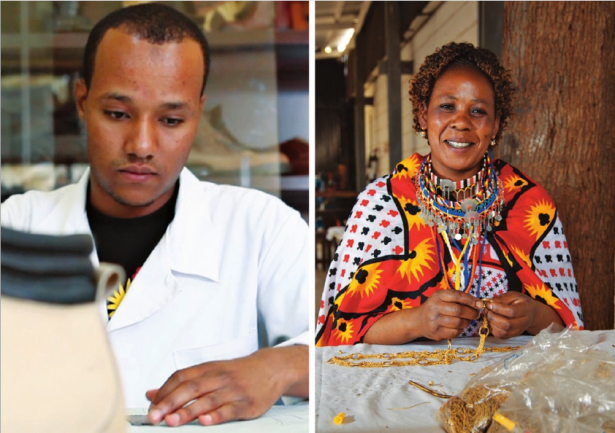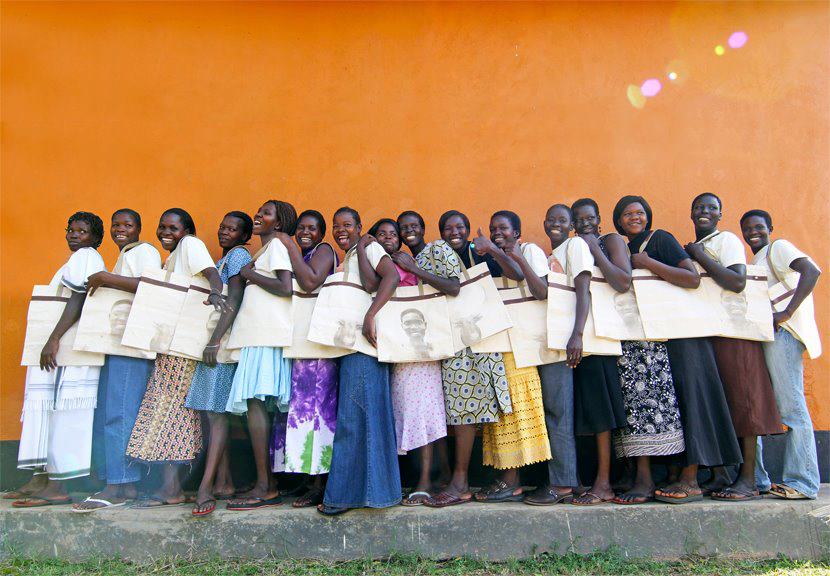Let’s play a little word association. When you hear the word “Africa,” what do you think of? My personal word choice – as someone who has yet to visit the continent – would be “safari” or “elephant” or “poverty” (I started the game so I get unlimited choices.) I asked Adam Finck, our Director of Programs in Central Africa, and he said “opportunity.” I like it. Especially for this blog post. Read on.

Data analysis from Google shows that since 2004, the most common single term related to searches from the United States for “Africa” has been “AIDS.” That saddens me. Considering the African Growth and Opportunity Act (AGOA) was signed into law on May 18, 2000 and over a decade later the continent is said to be one of the few bright spots on the gloomy economic horizon, one would think the single term search would be more along the lines of “development” or “kicking butt.”
“From Ghana in the west to Mozambique in the south,
Africa’s economies are consistently growing faster than those of almost any other region of the world.
At least a dozen have expanded by more than 6% a year for six or more years.”
– The Economist
Perhaps even more notable than the general growth of Africa’s economy is the key role women are playing in its economic success. The rate of female entrepreneurship is higher in Africa than in any other region of the world, the World Bank says. One of the women in the cresting wave of African entrepreneurs is Bethlehem Tilahun, the founder of SoleRebels. The footwear mogul of one of Africa’s best-known shoe companies says, “We’ve inverted the whole paradigm.” We love any and all kinds of paradigm shifts.
Believing wholeheartedly in the hardworking and capable women of Africa, Invisible Children started Mend in 2007 to improve the quality of life for women in Gulu, Uganda who were directly affected by the LRA conflict. Many of the current 22 seamstresses supported by Mend are former abductees, who were forced to become child soldiers or wives to the LRA rebel commanders. They now produce high-quality handbags while benefiting from advanced training in tailoring, finance, and personal development. By providing the seamstresses of Mend more marketable and economically beneficial outlets for their skills, Mend has helped reduce poverty, truly improving the livelihoods of some of the most vulnerable women in northern Uganda. Case in point: purchasing a handbag from Mend directly contributes to the economic growth of African women in the workplace.

And here’s the even better news: this holiday season, Invisible Children has broadened the span by partnering with 377 artisans across East Africa and offering handmade jewelry, bags, shoes, and scarves through our online store. With custom pieces, unique colorways, and our own one-of-a-kind products, you’ll definitely find gifts for you, and a loved one (or three). Look good, do good. #newmotto
And maybe after you shop, we’ll do another round of word association. And when I say “Africa,” you’ll say things like “innovative” or “their continent is better than mine.”
(Infographic: ConceptLink)

Think people should hear about this?